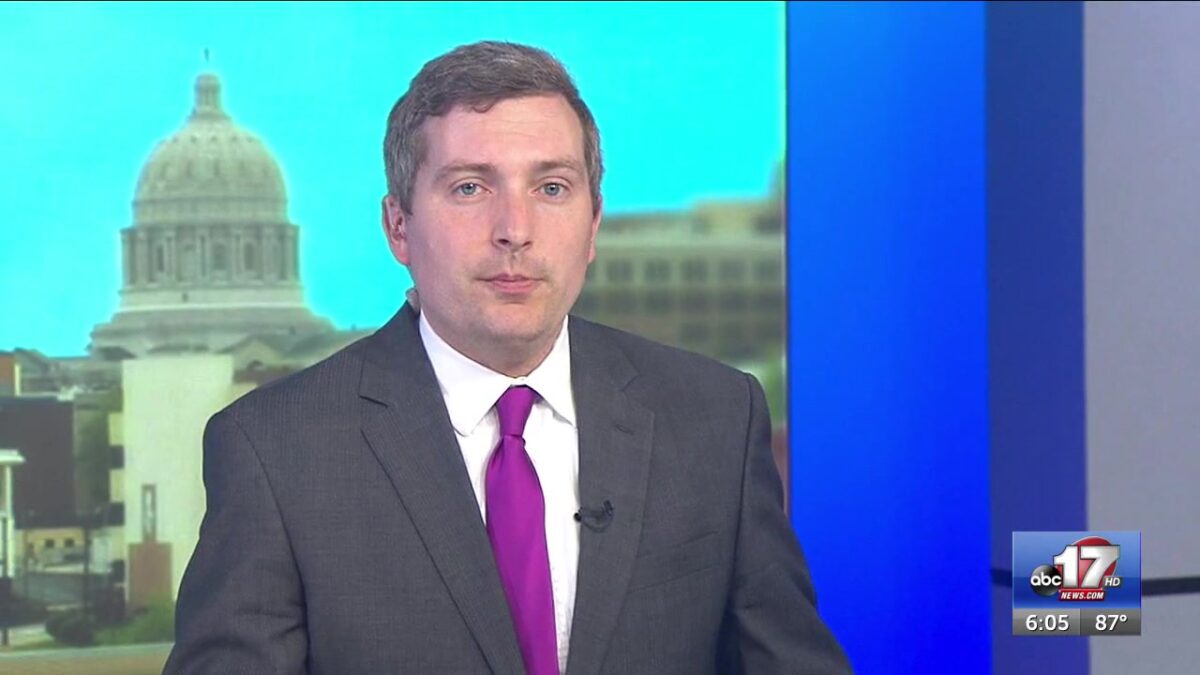Columbia public radio station sounds alarm about federal cuts

Olivia Hayes
COLUMBIA, Mo. (KMIZ)
Two radio stations in Columbia that rely on public funding say they’re facing an uncertain future after the U.S. House passed President Donald Trump’s rescissions package.
House Republicans gave the green light late Thursday for $9 billion in spending cuts from the federal government, which includes a $1.1 billion cut for the Corporation for Public Broadcasting.
The final vote tallied in at 216 for the rescission bill to 213 against. The cuts recommended by the Department of Government Efficiency cancel funding Congress previously approved. Trump is expected to sign the bill.
Kyle Felling, general manager for Mid-Missouri’s National Public Radio affiliate KBIA, said Friday that about $500,000 in KBIA’s funding was rescinded. Felling said those funds had been allocated for the next two years.
“For us, it goes to our ability to directly cover the community and to keep people educated and informed about things that are going on. So we’re disappointed by it,” Felling said.
KBIA broadcasts out of the University of Missouri’s McReynolds Hall. Felling said the effects of the funding cuts could trickle down to students.
“How those students are taught are by our professional and full-time staff who does editing work with them. This has the potential to affect our staffing and our programs and how we’re able to put that together for students,” Felling said.
That’s why Felling says KBIA started what it’s calling a “Resilience Fund.”
“We’re looking for additional grant funding. We’re reaching out to some of our other partners, hoping for bigger gifts that we can add into the fund to be able to weather the storm,” Felling said.
Felling said there is no set date to finish gathering donations for the fund, but he hopes over the next two years that KBIA can at least cover its budget.
“We’re looking towards our donors becoming regular, ongoing givers,” said Felling. “That’s a large part of our fundraising model is to have people who are donating, not doing so on an emergency basis, but to be regular, ongoing contributors to the station, and we’re going to be reaching out to people with that.”
Felling said the cuts will be felt hardest by the smallest communities.
“If you’re in, big city federal funding makes up a relatively small part of the overall picture. As you move into smaller and rural communities, that percentage goes up,” Felling said. “Places that are rural, small communities, underserved communities. Those are the ones that get impacted the most and that’s, that’s really sad.”
KOPN Radio in Columbia also spoke out in a post on social media about its loss of funding. Without CPB funding KOPN said it will lose $250,000.
“While we are proud to rely on your listener support to operate KOPN, this abrupt and significant change in the budget will be disruptive to operations, staffing, and programming. You know that KOPN is a shoestring operation with only two staff members and a frugal, thrifty approach to all we do,” the statement read.
Katherine Maher, CEO OF NPR, predicts immediate impacts could be seen within weeks.
“The federal cycle starts on October 1st. So we’re talking really, truly just weeks away. It’s very possible that by the end of this year, we will see harm to the station. It’s possible that we’ll see stations go dark,” Maher said.
Congressman Mark Alford, a Republican representing Missouri’s Fourth District, was one of the 216 votes in favor of the rescissions bill. In a statement to ABC 17 News, Alford expressed his praise for the funding cuts.
“With the proliferation of free, high-quality education content across the internet, NPR and PBS have outlived their usefulness. In addition, these outlets — especially at the national level — routinely show a clear left-wing bias, which should not be subsidized by taxpayers,” Alford said.
As publicly funded organizations, NPR and the Public Broadcasting Service are legally required to follow principles of fairness, balance and objectivity in their programming, according to the Public Broadcasting Act of 1967. The use of these guidelines by public and private news media has come under question during both Trump terms with the President coining the phrase “fake news.”
Alford said his position comes from his personal experience in the broadcast industry.
“For more than 25 years as a television news anchor, I competed against these taxpayer-subsidized entities. NPR and PBS should compete in the marketplace for advertising dollars just like ABC 17. It’s time for Big Bird to leave the nest,” Alford said.
Republican U.S. Sen. Eric Schmitt tells ABC 17 News the rescission bill “makes good” on the DOGE promise to weed out “fraud, waste and abuse” within the federal government.
“Getting rid of this crazy programing that, that people were really alarmed by, whether it’s Guatemalan sex changes, or DEI in Burma, or Sesame Street in Iraq with your taxpayer dollars was really just sort of out of line with our interest and we were able to find that waste and then pass rescission package to pull that money away,” Schmitt said.
The bill now sits in the Oval Office awaiting a final signature from the president.